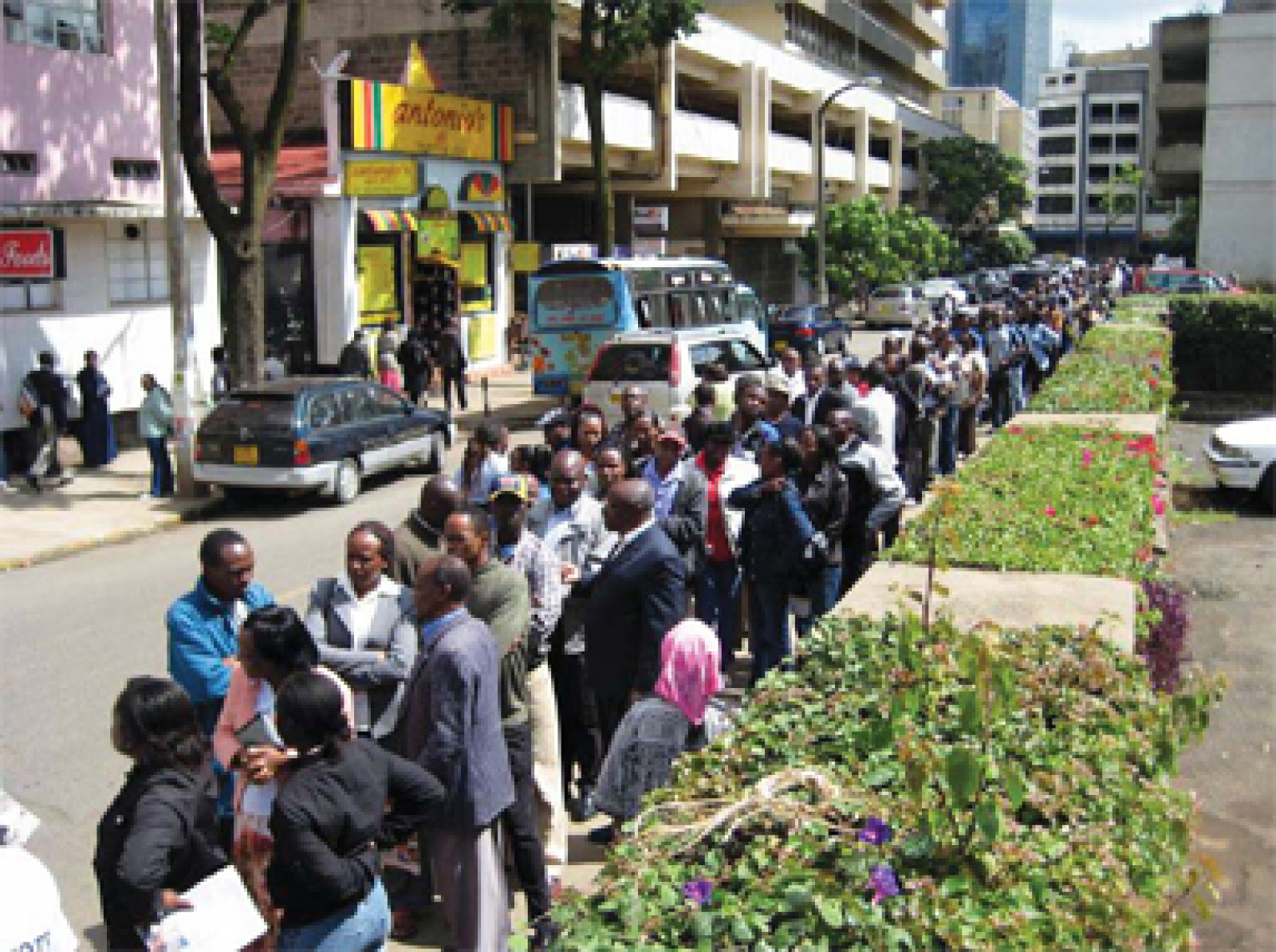
SHARE
Hopes that Kenya's 2007 elections would be seen as a model for African democracies were dashed within 48 hours of the December vote when violence erupted amid charges of manipulation in the tabulation of results. Once a bastion of stability in a volatile region, Kenya seemed perched on the brink of civil war as violent clashes claimed over 1,000 lives, displaced more than 300,000 citizens, and cost the nation's economy more than $1 billion.
The elections were largely a contest between the Party of National Unity (PNU) led by incumbent President Mwai Kibaki and the Orange Democratic Movement (ODM) led by Raila Odinga. The result was a showdown between the two principals and their respective community supporters. After two months of conflict, a power sharing agreement was brokered in February by former UN Secretary General Kofi Annan and others.
Since 1992, NDI has worked with Kenya's civic organizations to monitor election processes and assist the long-term development of the country's political parties. NDI also helped establish Inter-Party Provincial Committees (IPPCs), which provided a neutral setting for dialogue between political parties, the Electoral Commission of Kenya and community elders. The IPPCs, which were held in all eight regions of the country, were credited with reducing tensions in advance of the 2002 and 2007 national elections.
When hostilities erupted following the December polls, IPPCs were re-established to help stem the post-election violence. One IPPC forged a partnership with newly-elected members of parliament from Coast Province -- reaching out to imams of local mosques, leaders and representatives of youth gangs, members of the local media and the business community. By including community leaders, government officials and political party representatives in the dialogues, and by regularly updating local media on their activities, the committee encouraged popular support for regional peace.
After the formation of the new power sharing government, NDI facilitated meetings between former Norwegian Prime Minister Kjell Magne Bondevik and ODM and PNU leadership in Nairobi. Bondevik, who led two coalition governments in Norway, is president of the Oslo Center for Peace and Human Rights, a non-profit organization created to facilitate negotiations between governments and mediate peace in conflict areas. He provided advice on mechanisms that have helped sustain coalition governments. Under Kenya's new "Grand Coalition," Kibaki remains as president while Odinga serves as prime minister. Cabinet posts are shared equally between the partners. Based on the recommendations from NDI and Bondevik, the leaders agreed to create a six-member committee to develop a governance platform for the coalition. NDI hopes to reinforce these efforts by helping IPPCs organize forums on ways to support the coalition at the local level.
–
Published on July 7, 2008


